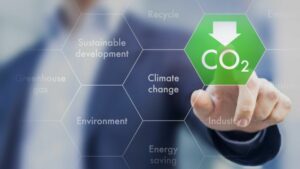
Toronto, Ontario – In “Hope is not enough: Inspiring better energy policy” author Steven Lightfoot concludes that setting intelligent energy policy cannot be based on “hope.”
In his commentary Lightfoot critiques the concept of “applied hope” made popular by environmental guru Amory Lovins, an advocate of hydrogen fuel. Lightfoot contends that Lovins’s “applied hope” of a hydrogen-powered vehicle is a “pipedream” when measured against the practical challenges of producing hydrogen in sufficient quantities to become a practical fuel system.
Lightfoot observes, “Unfortunately, hope that simple solutions exist to complex energy challenges is driving simplistic and unrealistic energy policy around the world. We should let hope inspire us, but not let it inform the rational processes we require to solve problems.”
Lightfoot says what is needed is policy-makers who don’t rely on hope and are encouraged “to ask the tough questions, to insist on quantification of information for comparative purposes, to seek out fact-based information and to use reason and experience when making decisions.”
Steven Lightfoot is based in Montreal and continuing an extensive career in gas turbine engineering now works in the design, construction and commissioning of electricity generating plants including district energy and waste-to-energy projects. Through his frequent writing and speaking engagements he also contributes to the public discourse on energy policy and its connection to both the environment and the economy.
CCRE Commentary is published about six times a year with each issue covering a single topic. Previous issues covered redesign of the feed-in-tariff, the technology choice for Ontario’s next new nuclear plant and restoring price fidelity to Ontario’s electricity market.
The Council for Clean & Reliable Electricity (CCRE) is a forum for reasoned analysis on subjects related to electricity policy. In the past the Council has sponsored conferences on the Auditor General’s report on Ontario’s renewable energy program, clean coal technology, nuclear power, governance models in the electricity sector and biomass energy opportunities.




